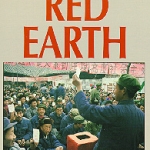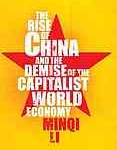Articles tagged with: marxian theory
Husunzi, International Observer »

Summary of Aufheben’s two-part article “Return of the Crisis,” highlighting the parts about China and asking some questions.
They argue that the financial crisis of 2007-8 “was caused neither by an accident due to misguided policy, nor… an underlying crisis of stagnation of the real accumulation of capital,” but rather “an oversupply of loanable money-capital within the global banking and financial system that has arisen since the late 1990s. This in turn has been the result of developments in the real accumulation of capital – such as the rise of China, the take-off of the ‘new economy,’ and the continued liquidation of the ‘old economy’ – that have been central to the long upturn.”
They tentatively conclude that “the nature and significance of the financial crisis is not that of a decisive turning point leading to an economic downturn or the end of neoliberalism, as many have supposed, but more of a point of inflection pointed to a new phase in the long upturn.” In a footnote they add, “The crisis could be seen as an earthquake caused by the shifting tectonic plates of global capital accumulation as the centre of accumulation gradually shifts away from the USA and the old advanced capitalist economies towards China and Asia”…
Chinese Revolutionary History, Husunzi, Reviews, Rural China »

John Lowrie criticizes my alleged use of the concept of “state capitalism” to analyze Mao-era socialism and the “people’s commune” system (in my review of Red Earth by Stephen Endicott, published issue #3 of China Left Review), and he proposes an alternative program for the transition to communism. Here I respond to both comments, clarifying the position introduced in my review.
Contemporary China, LangYan, Reviews »

The Rise of China and the Demise of the Capitalist World Economy attempts to fit the rise of China into the world-systems approach of Immanuel Wallerstein. Luckily Li is much more critical of the contemporary Chinese model of development for creating a post-capitalist world than Giovanni Arrighi’s Adam Smith in Beijing. For all the talk about the rise of China and China’s relationship to the US-centered world economy, this is not something that has been well-theorized to date.
International Observer »
From Endnotes, October 2008
The history of the capitalist mode of production is punctuated by crises. One could say that crisis is the modus operandi of capital, or of the capital-labour relation. This is true insofar as capital, the self-valorisation of value, the self-expansion of abstract wealth, is at any given time a claim on future surplus-value extraction: the accumulation of capital today is a bet on tomorrow’s exploitation of the proletariat.
The crisis today has taken the form of a financial crisis, while the prospect of a full-blown economic crisis looms …

